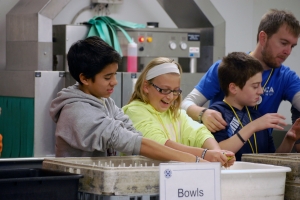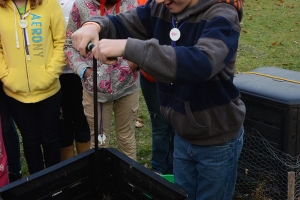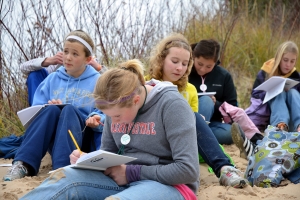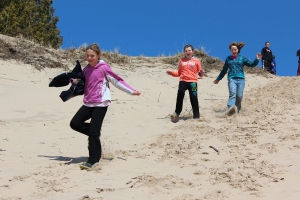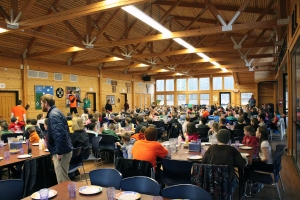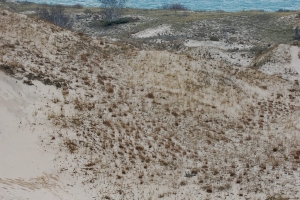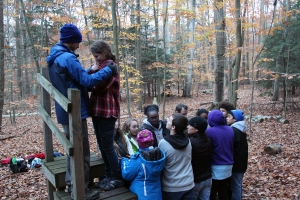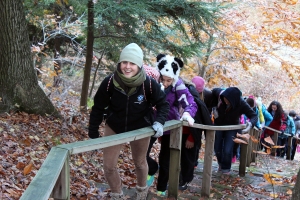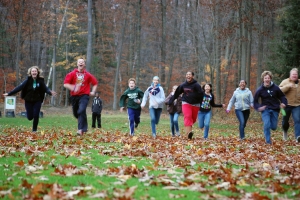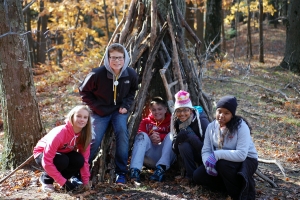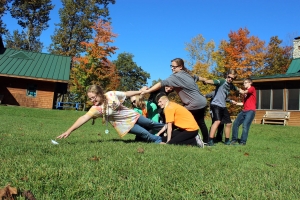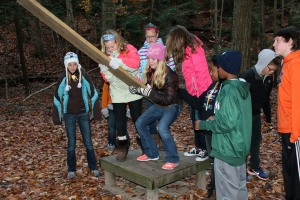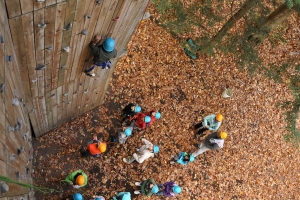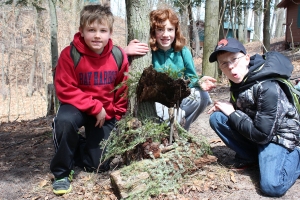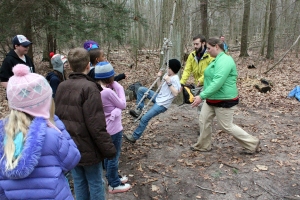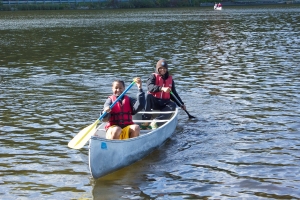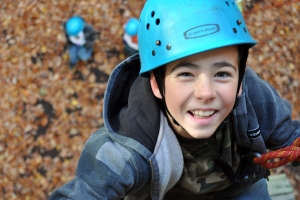We believe that reflection and intentional action are key components to a balanced life. Our retreats provide a space for communities to focus on the values and beliefs that drive their culture and the ways that they can act upon them.
Experiential activities are the cornerstone of our group development. Our Group Retreats may utilize Miniwanca’s forests, wetlands, mountains, and lakes, along with ropes courses to inspire reflection and conversation. Offering both individual and team challenges, our programs allow people to build personal and professional relationships while connecting with the wider world.
Our staff welcomes the opportunity to work with your group to create a program designed to meet your specific goals.
Additional Information: Learn more through our FAQs, meet our staff or review parent & program contact resources.

Program Outcomes
Miniwanca’s community and school programs serve hundreds of youth, educators and youth advocates through programs designed to enhance not only a participant’s skills, but their confidence in themselves and their future. Miniwanca programs help participants develop their character and their connections to the wider world. Our outstanding staff work to create communities where youth feel supported and empowered. Participants discover who they are and what they are capable of achieving.
Season: Year Round
Session: Short term residential
Frequently Asked Questions
We offer 3-season heated duplex-style cabins, each with beds for up to 16 children and 3 adults. For larger groups or winter programs, we also offer a fully winterized lodge.
Our staff supervises children throughout all structured program activities. Teachers, administrators or chaperones serve as the primary guardians, and are responsible for free time and overnight supervision.
We are committed to a student to Miniwanca staff ratio no higher than 12:1.
Following our Food Program guiding principles, we aim to serve a variety of healthy options, including a balance of whole grains, fruits, and vegetables incorporated into a child-friendly menu.
We are able to accommodate certain allergies and dietary needs. Miniwanca is a peanut aware facility. We do not serve peanuts or tree nuts from our kitchen during meal service. In addition, we can provide vegetarian, gluten free and dairy free options with advance notice. We may ask families to provide certain food items for children with complex allergies or dietary needs. We are committed to making a plan that works for everyone. Please contact us if you have questions about our offerings.
Our staff members are passionate about their work. Many of them have backgrounds in education, youth development and environmental education. They all hold first aid and CPR certifications, are at least 21 years old and have had background checks run against multiple national and local databases.
We hope Miniwanca feels special to every group we work with. Though there may be some small overlap between communities, we typically reserve our 600 acre site for one group at a time.
Weather in Michigan is quite variable from day to day and season to season. Appropriate clothing and gear will depend on the length of the program, time of year, and scheduled activities. Please refer to the relevant packing list in the ‘Resources’ section of this page for more specific information.
We enthusiastically welcome children with diverse backgrounds, experiences and identities. We value each participant’s right to fully experience Miniwanca free from prejudice and harassment. All of our staff members are trained to supervise children and to prevent and address incidents of conflict or bullying based on any aspect of a person’s identity, including, but not limited to: race, ethnicity, gender identity and expression, sexual orientation, and religious affiliation.
Resources
“Miniwanca was a place where I felt comfortable taking risks. Every time someone asks how I chose landscape architecture as a career path, I tell them about Miniwanca because my time spent there allowed me to realize the importance of meaningful place-making and how it fosters connections between people. Miniwanca is with me every day.”
– Miniwanca Alumna
